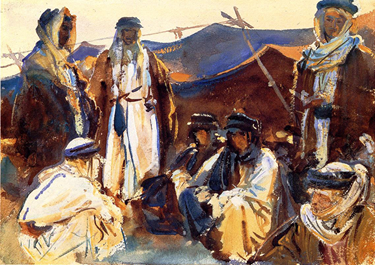


Two Female Witnesses in Place of One Male Witness
The requisite background reading to this article is the following QuranicPath article:
يَا أَيُّهَا الَّذِينَ آمَنُوا إِذَا تَدَايَنْتُمْ بِدَيْنٍ إِلَى أَجَلٍ مُسَمًّى فَاكْتُبُوهُ وَلْيَكْتُبْ بَيْنَكُمْ كَاتِبٌ بِالْعَدْلِ وَلا يَأْبَ كَاتِبٌ أَنْ يَكْتُبَ كَمَا عَلَّمَهُ اللَّهُ فَلْيَكْتُبْ وَلْيُمْلِلِ الَّذِي عَلَيْهِ الْحَقُّ وَلْيَتَّقِ اللَّهَ رَبَّهُ وَلا يَبْخَسْ مِنْهُ شَيْئًا فَإِنْ كَانَ الَّذِي عَلَيْهِ الْحَقُّ سَفِيهًا أَوْ ضَعِيفًا أَوْ لا يَسْتَطِيعُ أَنْ يُمِلَّ هُوَ فَلْيُمْلِلْ وَلِيُّهُ بِالْعَدْلِ وَاسْتَشْهِدُوا شَهِيدَيْنِ مِنْ رِجَالِكُمْ فَإِنْ لَمْ يَكُونَا رَجُلَيْنِ فَرَجُلٌ وَامْرَأَتَانِ مِمَّنْ تَرْضَوْنَ مِنَ الشُّهَدَاءِ أَنْ تَضِلَّ إِحْدَاهُمَا فَتُذَكِّرَ إِحْدَاهُمَا الأُخْرَى وَلا يَأْبَ الشُّهَدَاءُ إِذَا مَا دُعُوا وَلا تَسْأَمُوا أَنْ تَكْتُبُوهُ صَغِيرًا أَوْ كَبِيرًا إِلَى أَجَلِهِ ذَلِكُمْ أَقْسَطُ عِنْدَ اللَّهِ وَأَقْوَمُ لِلشَّهَادَةِ وَأَدْنَى أَلا تَرْتَابُوا إِلا أَنْ تَكُونَ تِجَارَةً حَاضِرَةً تُدِيرُونَهَا بَيْنَكُمْ فَلَيْسَ عَلَيْكُمْ جُنَاحٌ أَلا تَكْتُبُوهَا وَأَشْهِدُوا إِذَا تَبَايَعْتُمْ وَلا يُضَارَّ كَاتِبٌ وَلا شَهِيدٌ وَإِنْ تَفْعَلُوا فَإِنَّهُ فُسُوقٌ بِكُمْ وَاتَّقُوا اللَّهَ وَيُعَلِّمُكُمُ اللَّهُ وَاللَّهُ بِكُلِّ شَيْءٍ عَلِيمٌ
2:282 "You who believe, when you contract a debt for a stated term, put it down in writing: have a scribe write it down justly between you. No scribe should refuse to write: let him write as Allah has taught him, let the debtor dictate, and let him fear Allah, his Lord, and not diminish [the debt] at all. If the debtor is feeble-minded, weak, or unable to dictate, then let his guardian dictate justly. Call in two men as witnesses. If two men are not there, then call one man and two women out of those you approve as witnesses, so that if one of the two should be deviated the other can admonish her. Let the witnesses not refuse when they are summoned. Do not disdain to write the debt down, be it small or large, along with the time it falls due: this way is more equitable in Allah's eyes, more reliable as testimony, and more likely to prevent doubts arising between you. But if the merchandise is there and you hand it over, there is no blame on you if you do not write it down. Have witnesses present whenever you trade with one another, and no harm should be done to either scribe or witness, for if you did cause them harm, it would be a crime on your part. Be mindful of Allah, and He will teach you: He has full knowledge of everything."
The mistake made by many translators is translating "أَنْ تَضِلَّ إِحْدَاهُمَا فَتُذَكِّرَ إِحْدَاهُمَا الأُخْرَى / so that if one of the two should be deviated the other can admonish her" wrongly. Commonly, " تَضِلَّ " deviate/divert is translated as "forget" (or make a "mistake"), and " تُذَكِّرَ " as being reminded of a forgetfulness.
For example, the famous translation by Pickthal reads:
"...so that if the one erreth (through forgetfulness) the other will remember."
Examples of other erroneous translations are as follows:
[Yusuf Ali] "So that if one of them errs, the other can remind her."
[George Sale] "If one of those women should mistake, the other of them will cause her to recollect."
[Arberry] "So that if one of the women forgets anything the other may remind her."
When we analyse the Arabic script of the Qur'an, it appears that these translations are incorrect and not what Allah actually states.
The word, " تَضِلَّ " from the root " ضل " (dhalla) means to be be 'led astray, to be 'misled'. In the Qur'an it is always used in this meaning in its various verbal and nominal forms:
(1:7) "The way of those on whom You have bestowed You Grace, not of those who have earned wrath, or have gone astray (الضَّالِّين)."
(2:26) "Those who believe know that it is truth from their Lord; but those who reject Faith say: "What does Allah mean by this similitude?" By it He causes many to stray (يُضِلُّ), and many He leads into the right path; but He causes not to stray (يُضِلُّ), except those who forsake the path."
(2:108) "Would you question your Messenger as Moses was questioned in the past? Whoever changes from Faith to Unbelief, has strayed (ضَلَّ) without doubt from the even way."
Likewise, in verse 2:282, it refers to one of the women being 'led astray', rather than to forget (or to make a "mistake"). The Arabic word for "to forget" is not used here. It is found elsewhere in the Qur'an. If the verse meant, 'to forget', appropriate root verb would have been نسي (nasiya), not ضَلَّ (dhalla), as used in the following verse:
"Who could do greater wrong than someone who is reminded of the Signs of his Lord and then turns away from them, forgetting (نسي) all that he has done before? We have placed covers on their hearts, preventing them from understanding it, and heaviness in their ears. Though you call them to guidance, they will nonetheless never be guided." (Qur'an 18:57)
"Today We have forgotten (نَنْسَا) you, just as you forgot (نَسِيتُمْ) the meeting of this Day. Your refuge is the Fire and you have no helpers, because you mocked Allah's signs and the life of this world deluded you. Therefore, today they will not get out of it and will be unable to appease Allah." (Qur'an 45:33-35)
What does it mean to be led astray?
It has always been the case throughout history that financial and business transactions have been spearheaded by men. The objective of having transactions written down in agreement is to prevent fraudulent activity and to ensure contractual obligations are met. When contracts cannot be made in writing, Qur'an calls on having people as witnesses.
The purposes of witnesses shows that the witnesses may be subject to influences from one or more of the parties to the contract in case of testimony.
"No harm should be done to either scribe
or witness, for if you did cause them harm, it would be a crime on
your part."
(Qur'an 2:282)
Influenceability & Suggestibility
It has been proven through research that, influenceability and suggestibility of an individual is dependent on many factors. One of these factors is the dominant gender of the environment. It has been found that, generally, women who are in a male-dominated environment are more likely to show male-influence over their decision-making processes and responses. Likewise, men who are in a women-dominated environment are more likely to show female-influence over their decision-making processes and responses, compared to a single-gender environment. One more factor affecting influenceability is how much a particular topic is socially relevant to the gender of the person. Where the topic is less socially relevant to the gender of the individual, he or she may show greater levels of influenceability. When both factors combine, the effect is greatest. It is this understanding that explains verse 2:282.

Not only 7th century Arabia in which the Qur'an was revealed - until recently in history, businesses and transactions were a male-dominated field - the topic being more relevant to men than women. Even today, in most part of the world, businesses lie in the hands of male members of the household or society.
Influenceability and suggestibility not only of women, but of both genders is described as follows:
"In the past it was frequently reported in social psychology texts, for instance, that women are more susceptible to persuasive influences or suggestions than men. More recently, however, this has been corrected by research demonstrating that influenceability or suggestibility is affected by a variety of factors, including whether a topic is of concern to a subject, and the gender of the researcher in relation to the topic. It was demonstrated, for example, that women are more suggestible with a male researcher when the topic is socially defined as one of male interest, but that men respond in parallel fashion when a woman researcher tries to influence them on a topic socially defined as interesting to women. The result of this more recent research, research that takes into account such factors as the gender of the researcher, the experimental context, and the interests and self-definition of subjects, is that there is now no basis whatsoever for saying that women are more suggestible or Influenceabile than men."
Kourany, J.A, Philosophy in a Feminist Voice: Critiques and Reconstructions, pp. 241
It is not being suggested at all that the Qur'an suggests women are more suggestible or influenceable than men, only that the dominant gender and the social relevance of the topic affects both men and women. Since the verse at hand defines a topic strongly associated with men, the Quranic verse's stipulation on the requirements of witnesses is fully explainable, particularly as the Qur'an encompasses hiararchal societies as well, of most parts of the world - particularly in the past.
Is it Possible for Women as well as Men to develop a Strong Impartial Personality?
It is possible to develop a strong perceptive strength and character traits that would allow a single person of the non-relevant gender, in this case a single female witness to be present. But the Qur'an was revealed to be compatible with a generic and wider model of society and for suitability over a long period, not for a selected time or for minority cases. To still follow Quranic orders would be worship in the sight of Allah. Responsibility lies at the end of the day, in obeying the commandments of the Qur'an.
Older Research
Older research has findings suggesting that women have greater influenceability traits than men.
"To begin this discussion of in-group bias, I will share a personal story. In the late 1970s, I began my first meta-analysis, which summarized scientific research on the question of whether there is a sex difference in how easily people are influenced by others (Eagly 8: Carli, 1981). The project produced a small but significant overall tendency toward greater female influenceability that was somewhat larger in group settings. The surprise result in this project was that the sex of the authors of the articles correlated with the studies' findings, r (88) = .41, p < .001, with male authors more likely than female authors to find women more influenceable than men. Desiring to understand this unexpected relationship, my co-author, Linda Carli, and I performed a secondary analysis on the findings of another early meta-analysis on sex differences-Hall’s (1978) review of the ability to correctly decode nonverbal cues, a form of social sensitivity. The project had produced a moderate tendency toward greater decoding skill in women than men."
Robert W. Proctor, E.J. Capaldi, Psychology of Science: Implicit and Explicit Processes, pp. 270
" تُذَكِّرَ (tuzakkir)".
This verb, also means 'to admonish / receive guidance' in the Qur'an, rather than simply, 'to remember'. For example,
"Is he who knows that what is revealed unto you from your Lord is the truth like him who is blind? But only those of understanding will receive admonition (يَتَذَكَّرُ)." (Qur'an 13:19)
Contextually, since the verse speaks of one of the women being led astray/deviated (by men in the scene), the second female witness admonishing or correcting her is the more appropriate meaning of "تُذَكِّرَ (tuzakkir)", instead of 'to make her remember'. "To remember" is selected by many translators to tally with the wrong translation of the first part of the verse. Therefore, "تُذَكِّرَ (tuzakkir)" is to correct the other witness when being influenced in the wrong direction.
Conclusion
Unlike most erroneous translations, the Qur'an does not say if one of the two women "forgets" (or makes a "mistake"). Therefore, the Qur'an does not suggest women are forgetful or prone to making mistakes, hence have some form of deficiency of the mind. The word used is " تَضِلَّ " (tadhilla) - 'to be deviated' in reference to influences and suggestions from the male dominant scene toward female witnesses in the event of testimony in a hghly male-related subject. The requirement of two female witnesses is due to suggestibility and influenceability of individuals functioning in gender non-relevant contexts and where the dominant gender is the opposite of the individual. It is particularly true that such effects are more likely in the mentioned situation the Quran is calling witnesses for (business / financial transactions), particularly in the past in the social scenario the Qur'an was revealed in.
Therefore, the Qur'an does not suggest that witnessing of two females is worth one male witness. This is because the reasoning to why the stipulation is made would be equally true if it was in reference to men operating in the parallel situation, where the dominant gender is female and the topic is more socially relevant to the female gender.

Copyright © , QuranicPath. All Rights Reserved.


